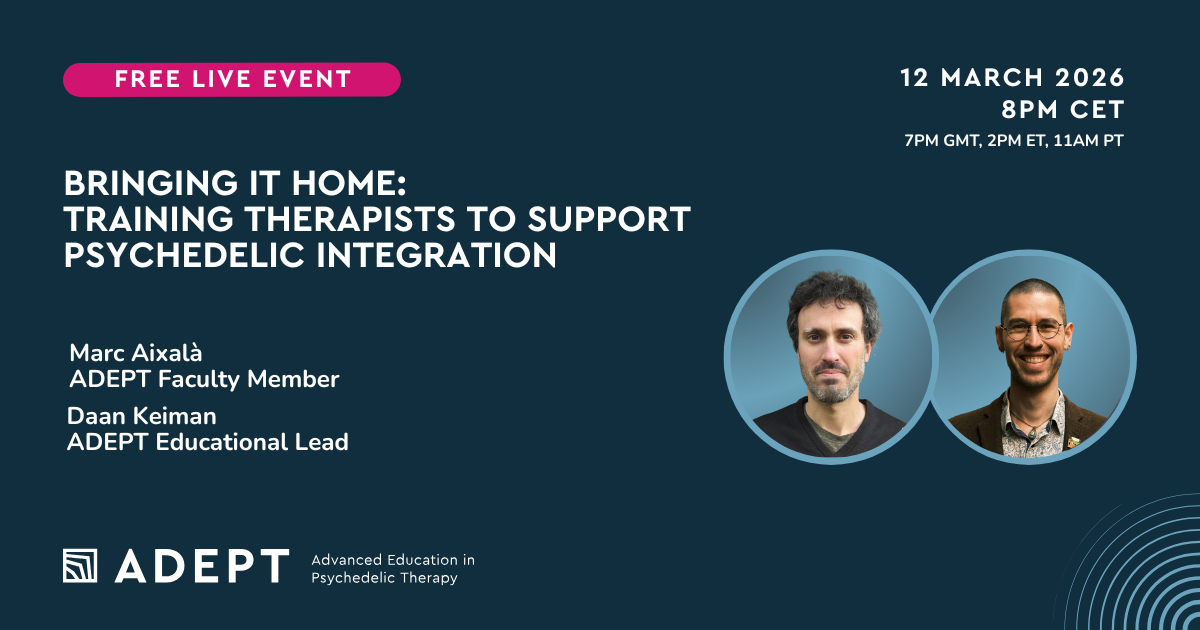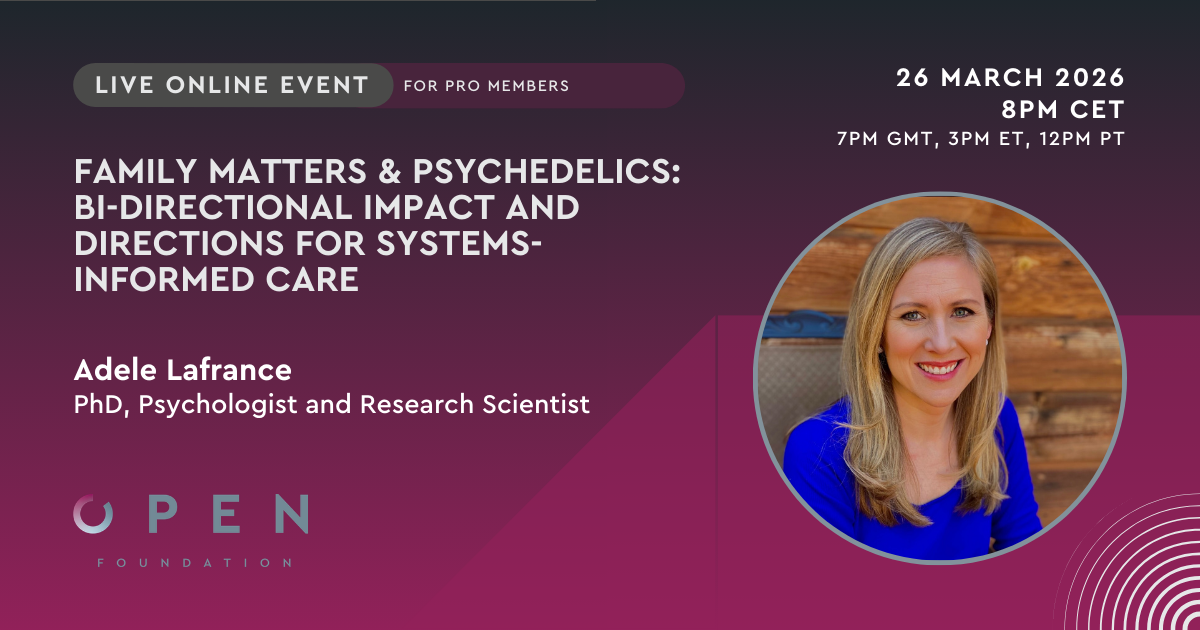
Earlier, we reported on the first study with LSD in human subjects in more than forty years, conducted in Switzerland by Peter Gasser and his team. A follow-up of this study [1], based on qualitative interviews with participants, indicates lasting positive outcomes.
The original double-blind, placebo-controlled study was carried out on a sample of twelve subjects, nine of which went on to complete the full course of the study, including the 12-month follow-up. The participants, all terminally ill, underwent 6-8 non-drug psychotherapeutic sessions and two LSD experiences conducted by a co-therapist dyad. The four subjects who initially received the active placebo of 20µg of LSD were offered the possibility to take two full experimental 200µg-doses of LSD at the end of the actual study, an opportunity that was taken by three of them, who were subsequently included in the qualitative interviews.
All subjects had previously displayed significant anxiety and/or depression related to their life-threatening health situation. All of them reported considerable long-term benefits, among which are reduced anxiety, less fear of death, and an improved quality of life. Interestingly, most of them also reported positive changes in personality, which could be a subjective confirmation of the quantitative measures of trait anxiety (as opposed to state anxiety) that were reported. These trait measures dropped significantly after the LSD sessions, and remained low at the 12-month follow-up [2].
In subjective reports of the LSD sessions, participants described facilitated access to emotions and catharsis. Facing a short life prognosis, they reported that LSD intensified and allowed expression of associated emotions. The interviews suggest the patients benefited from this intensified emotional experience. LSD also enabled them to view themselves and their difficult situation in a new, broader perspective. “Dying is as usual or unusual as life itself,” said one patient. “I simply have to familiarize myself with the idea and the process.” The patients also reported drastic shifts in emotions during or between the two sessions, usually beginning with ‘negative’ feelings related to their life situation, such as anxiety, depression and hopelessness. This reportedly negative emotional state transformed into a positive one, felt with an intensity never experienced before and lasting for at least one year after the sessions. Although they were facing ongoing severe somatic diseases, none of the participants reported any adverse effects from the psychedelic sessions.
Another interesting aspect is the approach that was chosen. Two different approaches emerged from the early research with LSD between the 1950s and the 1970s. In psycholytic therapy, used mainly in Europe, patients underwent a high number of psychoanalytically oriented psychotherapeutic sessions with low to medium dosages of LSD (50-100 µg). The psychedelic approach, on the other hand, aimed to elicit mystical or peak experiences in patients by administering them high doses (200-500 µg) in a limited number of sessions. This latter method was more frequently used in the United States, and up to now, it is the only approach that was used in the treatment of end-of-life anxiety.
In the Swiss study, the approach was very much akin to the psychedelic method, however staying on the low side of the dosage range. The setting was also somewhat looser than in the traditional psychedelic approach, where the subject kept on eyeshades most of the time while listening to music through headphones. Most of the resulting experiences could be described as ‘peak experiences’, but do not match the criteria for full mystical experiences. These two types of experiences can be quite similar. Ego boundaries are loosened in peak experiences, but don’t dissolve completely as in mystical experiences. Intellectual functions also stay intact to a greater degree, which allows for a higher degree of interaction between subject and guiding therapists than in the traditional psychedelic approach. These peak experiences seem to be the main psychological mechanism of action involved, much more so than the cognitive and psychodynamic experiences that are also frequent as a result of LSD administration.
The Swiss study’s approach certainly has advantages, one of which being that it seems to normalize the results for all participants. In past studies with psychedelics for end-of-life anxiety, conducted during the first era of psychedelic research, the typical outcome would show a dramatic improvement in about one-third of the subjects, a moderate improvement in another third, and no significant changes in the remaining third [3]. In the present study, remarkably, every single patient experienced significant improvement, although none reported ‘dramatic’ effects. This result certainly warrants further study, especially in light of the development of different therapeutic approaches to be used in psychedelic therapy.
[1] Gasser, P., Kirchner, K., & Passie, T. (2014).
[2] Gasser, P., Holstein, D., Michel, Y., Doblin, R., Yazar-Klosinski, B., Passie, T., & Brenneisen, R. (2014).
[3] Kurland, A.A. (1985).
References
Gasser, P., Kirchner, K. & Passie, T. (2014). LSD-assisted psychotherapy for anxiety associated with a life-threatening disease: A qualitative study of acute and sustained subjective effects. Journal of Psychopharmacology, 29(1), 57-68. [Abstract]
Gasser, P., Holstein, D., Michel, Y., Doblin, R., Yazar-Klosinski, B., Passie, T., & Brenneisen, R. (2014). Safety and Efficacy of Lysergic Acid Diethylamide-Assisted Psychotherapy for Anxiety Associated With Life-threatening Diseases. The Journal of Nervous and Mental Disease, 202(7), 513–520. [Abstract]
Kurland, A.A. (1985). LSD in the supportive care of the terminally ill cancer patient. Journal of Psychoactive Drugs, 17(4), 279–290. [Link to full text]













